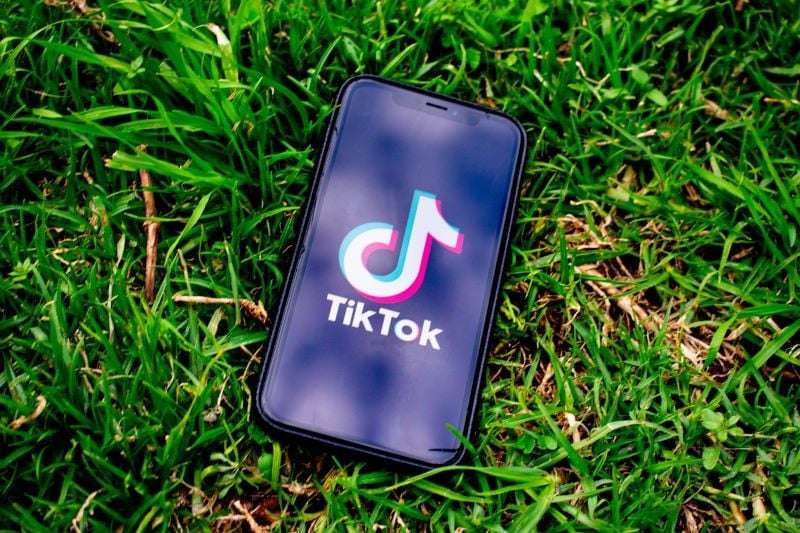TikTok has made a critical move in its legal battle with the U.S. government, appealing to the U.S. Supreme Court in an attempt to prevent a potential ban on its platform. The short-video app, which boasts over 170 million American users, has filed an emergency request to temporarily block a law requiring its parent company, ByteDance (a Chinese tech giant), to divest the app by January 19, 2024, or face a full-scale ban. This appeal comes after a lower court ruling upheld the law, intensifying the pressure on the app’s future in the U.S.
The Legal Battle: TikTok’s Final Push
In a last-ditch effort to prevent the shutdown of TikTok, the company, along with its parent ByteDance, filed an emergency request with the U.S. Supreme Court. The filing seeks an injunction to prevent the law from taking effect before the court has a chance to review the matter. A group of U.S. TikTok users also joined the legal fight by submitting a similar request.
The law, passed by Congress in April 2023, mandates that ByteDance either divest from TikTok or face the app’s removal from U.S. app stores by the deadline. The Justice Department has argued that TikTok represents a severe national security threat due to its ability to collect massive amounts of personal data on U.S. citizens and the potential for content manipulation by the Chinese government.
U.S. Court of Appeals Rejects TikTok’s Claims
On December 6, 2023, the U.S. Court of Appeals for the District of Columbia Circuit ruled against TikTok’s appeal, rejecting its claims that the law violated free speech protections under the First Amendment. TikTok and ByteDance now seek to have the Supreme Court block the law’s enforcement while they appeal the lower court’s decision. The companies argue that the First Amendment should protect the right of American users to freely choose the content they wish to view on the platform, even if it is influenced by a foreign entity.
Why TikTok Is Fighting to Stay Open
TikTok’s legal team argues that a shutdown of the app would have catastrophic consequences for both the company and its users in the U.S. With more than 170 million American users, TikTok would lose a significant portion of its audience, which could damage its ability to attract advertisers, recruit content creators, and maintain its overall presence in the U.S. market. The companies also claim that the shutdown would severely impact the livelihoods of thousands of content creators who depend on the platform.
Moreover, TikTok views itself as an essential platform for free expression. The company believes that American users should have the right to decide whether they wish to continue using TikTok, fully aware of the alleged risks associated with the app. The companies contend that the government’s efforts to censor the platform would violate free speech protections guaranteed by the First Amendment.
The Government’s Argument: National Security Threat
On the other hand, the U.S. government has framed the issue as one of national security. U.S. officials argue that TikTok, as a Chinese-owned company, could be used by the Chinese government to gather sensitive data on U.S. citizens and potentially manipulate the content American users see. The government is concerned that the app’s algorithm could be used to influence U.S. politics or spread disinformation.
The Justice Department has emphasized the scale of the national security risks posed by TikTok, noting the vast amounts of personal data TikTok collects from its users, including their locations, messages, and preferences. According to the U.S. government, this data could be leveraged for espionage purposes or to influence public opinion.
The Political Landscape: Impact of Trump’s Election Campaign
Adding another layer of complexity to the situation, former President Donald Trump has expressed his support for TikTok, reversing his stance from 2020 when he attempted to ban the app. During his 2024 presidential campaign, Trump made it clear that he would work to save TikTok and prevent a ban, calling it a crucial platform for millions of Americans. Trump’s stance could play a significant role in the legal battle, especially since the law requiring ByteDance to divest TikTok is set to take effect just one day before the presidential inauguration.
The law mandates that TikTok either be sold or shut down in the U.S., and failing to comply would result in the app being banned from U.S. app stores such as the Apple App Store and Google Play. TikTok’s legal team has stated that shutting down the app would cause irreparable damage, and they have requested that the Supreme Court rule on the matter by January 6, 2024, to allow adequate time to prepare for a shutdown if their appeal is denied.
The Future of TikTok: What’s Next?
As the legal battle continues, the fate of TikTok in the U.S. remains uncertain. The outcome of this case could have far-reaching implications for the app’s future in the U.S. and for other foreign tech companies operating within American borders. If the Supreme Court sides with the U.S. government, TikTok could be forced to shut down in the U.S., but if the court rules in favor of TikTok, the app will likely continue operating while the case progresses further through the legal system.
The Role of Content Creators and Users in the Debate
One of the most significant factors in this legal battle is the role of TikTok’s users and content creators. The app has become a cultural phenomenon, with millions of users depending on it for entertainment, education, and even income. Content creators, many of whom have built successful careers on TikTok, have spoken out against the potential ban, arguing that it would harm their businesses and livelihoods.
TikTok’s impact on American culture is undeniable, and many users argue that a ban would limit free expression and access to a diverse range of ideas. These voices are pushing back against the notion that TikTok is a national security threat, instead focusing on its role as an important platform for creativity and communication.
Frequently Asked Questions (FAQs)
1. Why is TikTok at risk of being banned in the U.S.?
TikTok is at risk of being banned in the U.S. because of national security concerns. The U.S. government fears that TikTok, owned by the Chinese company ByteDance, could collect sensitive data on American users and potentially manipulate the content viewed by U.S. users.
2. What is the deadline for TikTok to divest its ownership?
TikTok’s parent company, ByteDance, must divest from the app by January 19, 2024, or face a ban on TikTok in the U.S. This deadline is part of a law passed by Congress earlier this year.
3. What is TikTok’s defense against the ban?
TikTok argues that the law violates the First Amendment by restricting free speech. The company contends that American users should have the right to continue using the app if they are aware of the risks, and that a ban would cause irreparable harm to the app’s user base and content creators.
4. What role does former President Trump play in the TikTok debate?
Former President Donald Trump has expressed support for TikTok, reversing his earlier stance in 2020 when he attempted to ban the app. He has stated that he would work to prevent a ban on TikTok if he is re-elected as president in 2024.
5. What happens if the Supreme Court rules against TikTok?
If the Supreme Court rules against TikTok, the app will likely be banned in the U.S., and ByteDance will be required to sell its ownership of the app. However, if the court rules in favor of TikTok, the app will continue to operate while the legal case progresses.
Conclusion
The legal battle over TikTok’s future in the United States is a complex issue with significant implications for the app, its users, and the broader tech industry. As the case moves through the legal system, the U.S. Supreme Court will play a pivotal role in determining whether TikTok can continue operating in the U.S. or if the government’s national security concerns will outweigh the app’s value as a platform for free expression.
ALSO READ
https://flarenews.pk/2024/12/17/south-africa-opt-to-bat-first-against-pakistan-in-1st-odi/



